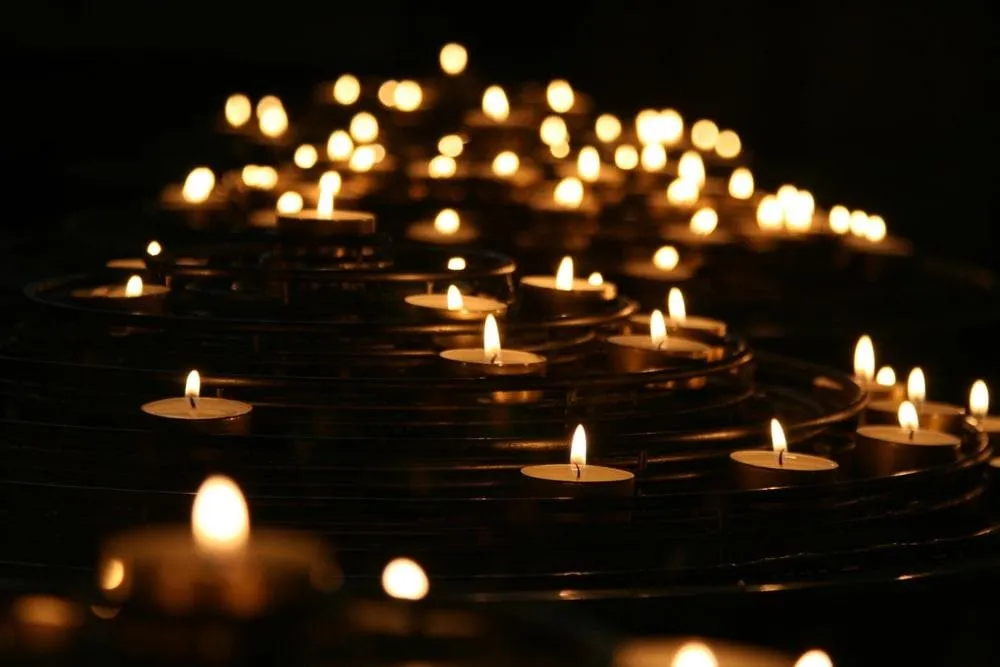“I put down these memorandums of my affections In honor of tenderness In honor of all of those who have been Conscripted into the brotherhood Of loss… “ – Edward Hirsch כורסא אגורה nike tech fleece tapered joggers in blue dámské jarni kotníkové boty tamaris best apple watch bands for women dežna obleka za otroke spodnje hlače moške Right now in America there are over 200,000 families who have lost a loved one to the COVID-19 virus. In contrast to the outpouring of love and support after the horrific events of September 11, 2001, there seems to be little support shown to those who are grieving today, no National Day of Mourning, and little societal recognition of the families who have lost a loved one, many of whom were unable even to say goodbye. There are millions of others who have recently lost a family member from various other causes. Even if a survivor is surrounded by supportive friends and family, and many are not, grief is a lonely journey. No one, not even the most empathic person, can truly feel another’s grief; no one, even someone grieving the same person, grieves the same way. While popular culture speaks of closure and “moving on” (likely within a year) this is a fundamental misunderstanding of grief and loss. Loss survivors experience many painful feelings, among them deep sorrow, feelings of loneliness and isolation, shock, denial, yearning, anxiety, regret, confusion, difficulty concentrating, physical symptoms, anger, loss or questioning of religious faith, even feelings of wanting to die yourself. These feelings are often not shared, for they can feel frightening and not normal. They are normal, just not talked about much. While all loss of a loved one brings deep sorrow, some deaths are expected and occur in the normal course of aging; unexpected death and/or untimely death, such as the death of a child, or loss of a family member from COVID-19, is even more complicated. The coronavirus is untimely, unexpected, and unpredictable, and some survivors believe that the death of their loved one could have been prevented. It can take a long time to heal from these deaths, or even to feel joy again. Grief often comes in alternating waves of sorrow and numbness. Some grief self-help books speak of stages, ending in recovery, but grief does not honor stages or time limits. Winston Churchill famously said, “If you’re going through hell, keep going.” True, but during this time, there are some things that may help. Journaling, talking with a spiritual advisor, praying, making memory books, reading books written by other survivors, and activities such as yoga or creating art, may help some people. Coming to terms with and forgiving the inevitable imperfections in yourself and the relationship with your loved one is an important part of grieving. Many poets and writers, such as Anne Morrow Lindbergh, have written of the possibility of developing a new relationship with the one who has died, keeping them as a loving presence in our life in ways we do not yet understand. Another step important to many is to find support from an empathetic friend who can bear to hear your grief. Grief support groups can be especially helpful, because you are joining with others experiencing the same loss, who can be companions on your journey. Some of these groups can be found in religious settings, while others are sponsored by various organizations and are staffed by professionals. There are support groups (in-person and on the internet) for specific types of losses: loss of spouse, child or sibling; or loss through suicide, violence, or certain diseases. Most of these are free or charge a small fee. They are especially helpful for people who live in places where grief services are scarce or non-existent. Individual grief therapy can be especially helpful to many, but it is important to find someone who is trained, experienced, and empathic. Many of the best grief therapists have experienced serious losses themselves. Look for someone you feel comfortable with, who can encourage you to experience and express all your feelings, who will not hurry you, and who will allow you to take the time you need to begin to rebuild. Finally, I offer my deepest condolences to those of you who have lost loved ones, that you may begin to feel hope for the future again.


